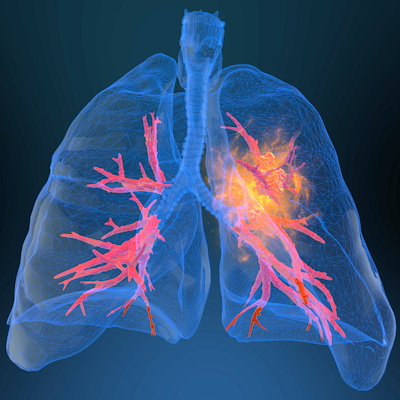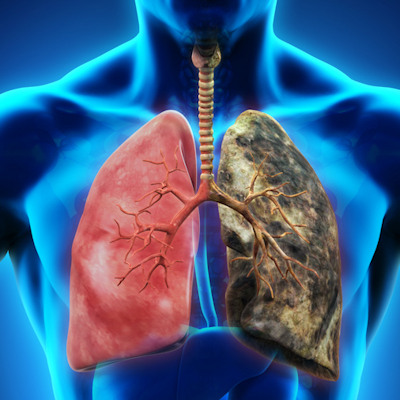November 9, 2022 -- A team, led by researchers from the University of Edinburgh, has studied the role of the protein toll-like receptor 2 (TLR2) as a key tumor suppressor. Their findings, published November 8 in the journal Cell Reports, could aid in early detection of lung cancer.
The study describes how TLR2 helps control some of the body's defense mechanisms when cancerous mutations occur in cells. The protein is linked with senescence, where cells stop growing and secrete different chemicals and other proteins which together act as warning signals and defenses against cancer. Since senescent cells are present in early lung cancers and not present in late-stage cancers, the authors suggest that senescence can prevent cancer progression.
For their research, the team used data from human tumor samples and found that patients with high levels of TLR2 in the early stages of lung cancer had increased survival compared to those who had lower levels.
The team then used a drug known to activate the protein in a genetically engineered mouse model of lung cancer. They found that the drug reduced lung tumor growth in the mouse model as well.
According to the researchers, TLR2 impairs early lung cancer progression via activation of cell intrinsic cell cycle arrest pathways and the proinflammatory senescence-associated secretory phenotype (SASP). The SASP regulates non-cell autonomous antitumor responses, such as immune surveillance of premalignant cells. They also observed impaired myeloid cell recruitment to lung tumors after TLR2 loss.
The study's fundings could lead to research into using senescence and the associated secreted chemicals as part of a screening program to provide earlier lung cancer diagnosis, according to the authors.
Copyright © 2022 scienceboard.net










